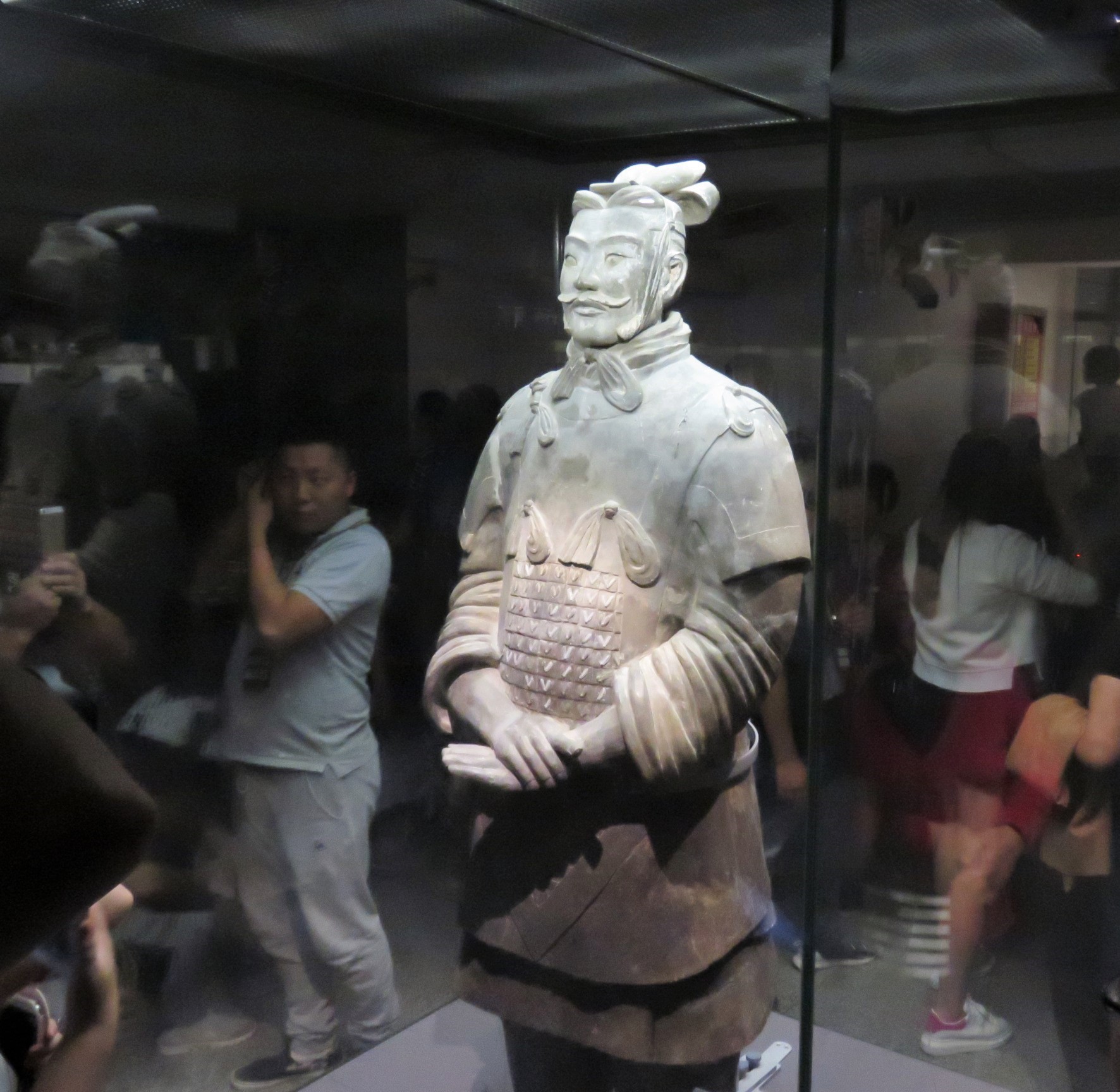The Terracotta warriors are easily one of China’s most famous and fascinating pieces of history. This clay army was created more than 2200 years ago for China’s famed emperor, Qin Shi Huang. I mentioned in my Great Wall post that China was originally several small settlements that all had separate walls, but later in history, an emperor united all the territories into 1 country. This emperor, Qin, was the same guy who commissioned the Terracotta Army, so that he’d have ample protection in the afterlife.
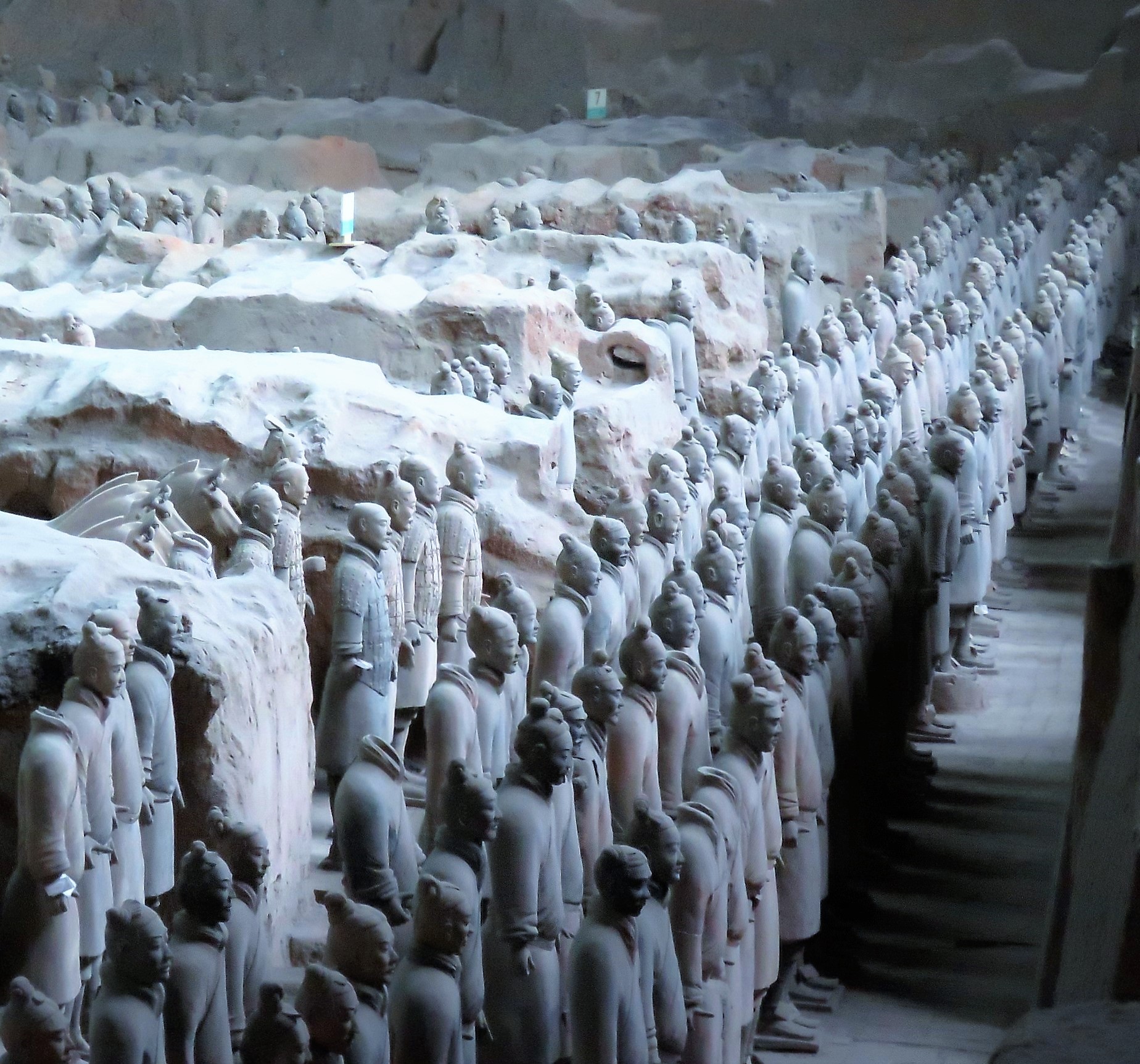
It took 700,000 workers roughly 40 years to build this magnificent army. Each soldier (and there – are over 8000 of them) is unique. Torsos, legs and arms were mass-produced with a single mold. The bodies for different types of warriors differed, of course (archers had different bodies than generals, of course), but other than that, the torsos were made in a pretty uniform way. The faces, however, are all different, and it is thought that each one is based on one of the 700,000 workers who built this fascinating army.
As I mentioned, there are several different types of soldiers found in the 3 excavation pits. Foot soldiers, archers, generals and cavalry are all present in the pits and you can learn about each of them by reading the many signs put up around the exhibits.
Terracotta is a type of clay, so sadly, many of these soldiers have been damaged by collapsing roofs and enemy armies. Many of the soldiers are missing their heads or other body parts, mostly due to military attacks.
Archaeologists have been working on restoring some of the damaged soldiers for years, and have discovered some interesting things throughout the process. For example, the warriors were originally painted and very colourlful. Also, there is a whole section of warriors that are based on Chinese minorities and different ethnic groups throughout the country. This was a diverse army!
One of my favourite parts of the visit was seeing the area where warriors are being put back together, piece by piece. When I wasn’t taking Literature or Writing classes in University, I was taking every Classical History class I could. What always amazed me about this field of study, is how much archaeologists are able to learn from a site like the Terracotta Warriors. Just by studying these old pieces of clay, we can learn about ancient military customs, tools, building materials and countless other details. It’s even widely believed that the Terracotta Warriors have Hellenistic roots. Their shape and the way they were created is very similar to Greek artwork.
This army was our main reason for wanting to see Xi’an during the holiday. I must say, the Terracotta Warriors are well-worth seeing, but I wouldn’t recommend seeing them during the October Holiday. The crowds were positively dangerous and more than once, Dave had to grab my hand to get me through the swarms of people. If I hadn’t had photography to keep my mind off the crowds, I would have been in a straight up panic attack.
The worst of the crowds were in Pit #1. This is the most famous pit, where you can see 6000+ soldiers and 50 Chariots.
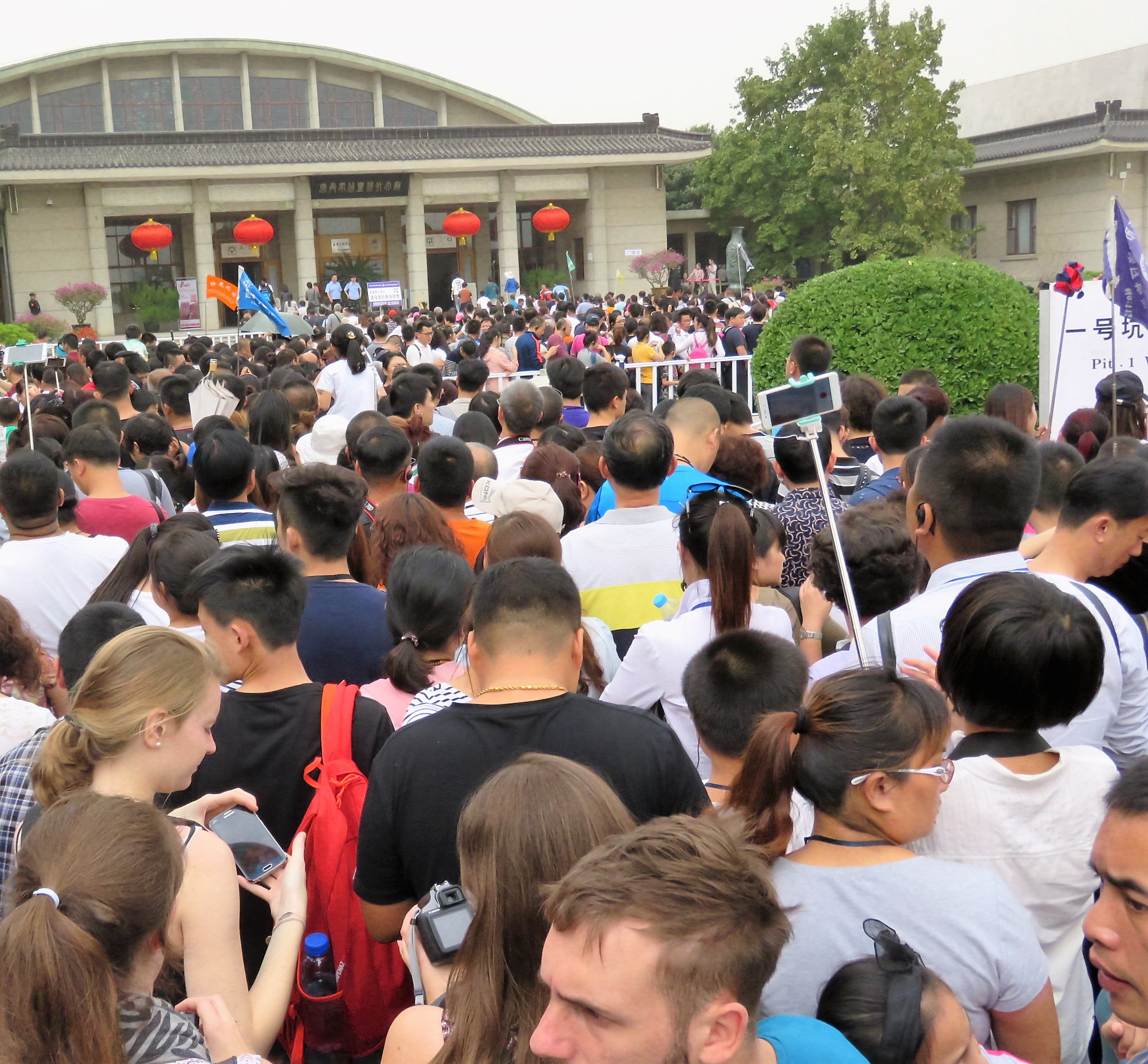
I assumed the guards were going to let a certain number of people in at a time, but instead they let everyone in at once…
Unfortunately, the crowds were so intense that I never actually got to see the warriors from the front. I waited for ages, but when people started to panic and push their way through to the front, Dave grabbed me and pulled me out. Neither of us are sure how that railing holds out…
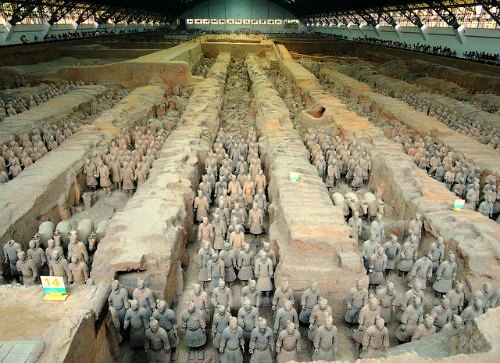
Once we got around the corner, the crowd seemed to thin out. There was an emergency exit that a lot of people took just to get away from the swarms of people. I didn’t want to give up entirely, so we kept on, along with thousands of other people, including little old ladies and small children. One particularly brutish guy (who was twice the size of most of the people around him) ended up getting my elbow to his chest and my finger in his face as I told him to knock it off! He did calm down, so I’m glad I did it…but all I could keep thinking in this crowd was how easy a stampede could happen.
Here are some pictures that I DID manage to get of the warriors.
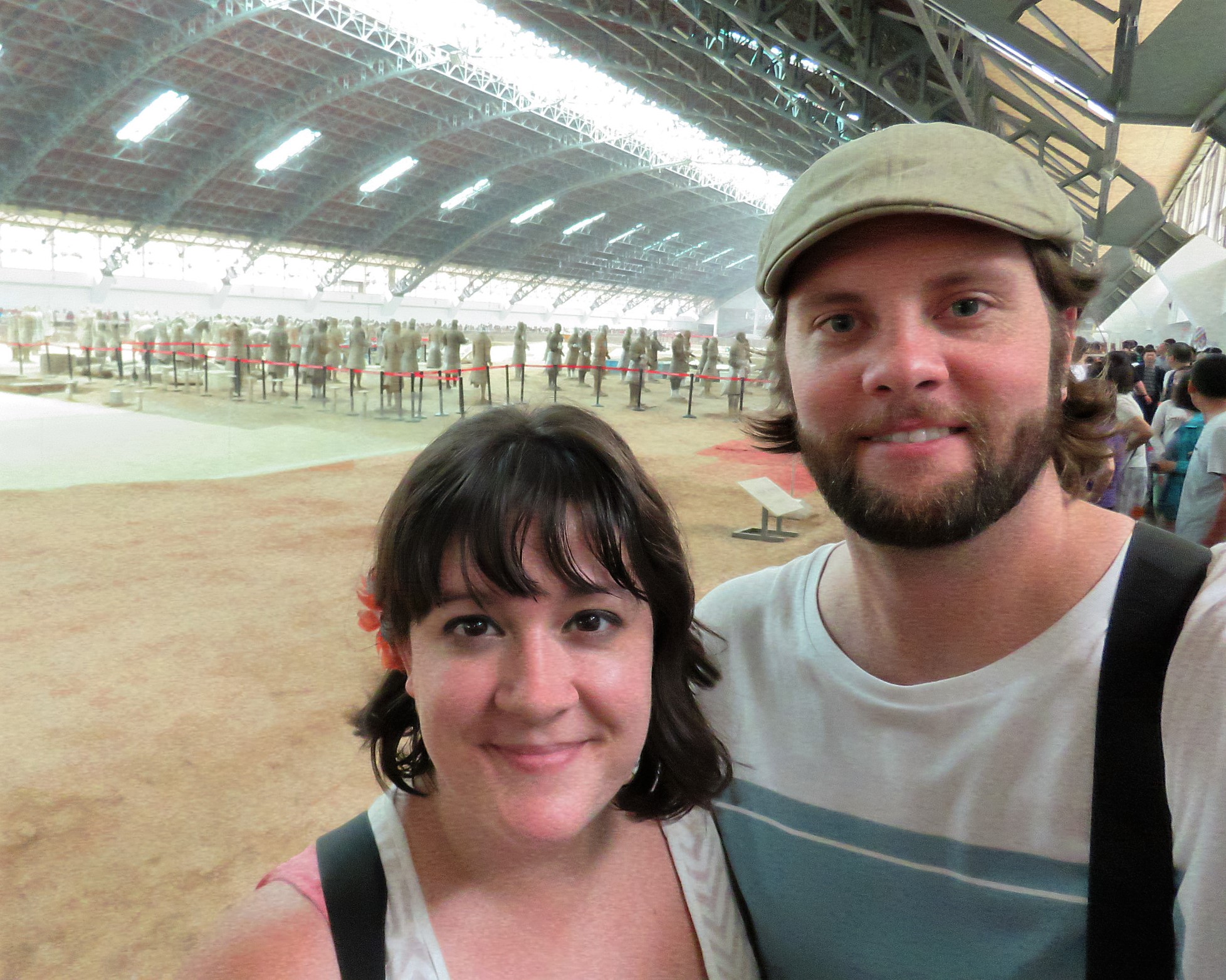
After pit 1, we headed to a nearby restaurant for lunch and some tea to calm us down. We were also shown Emperor Qin’s tomb sight (a mountain), but we weren’t allowed in, because of the high mercury levels there. Emperor Qin actually believed that Mercury was the key to longevity, so he ate it as much as he could. It’s probably what killed him. At least he left behind quite the legacy!!!
Next week we leave for Vietnam and Laos! It should be a memorable trip!!!
I’m planning on blogging throughout the trip, much like I did in India last year, so prepare for lots of posts about all sorts of cool stuff! 33 days in South East Asia is bound to be one heck of an inspiration writing-wise!!
